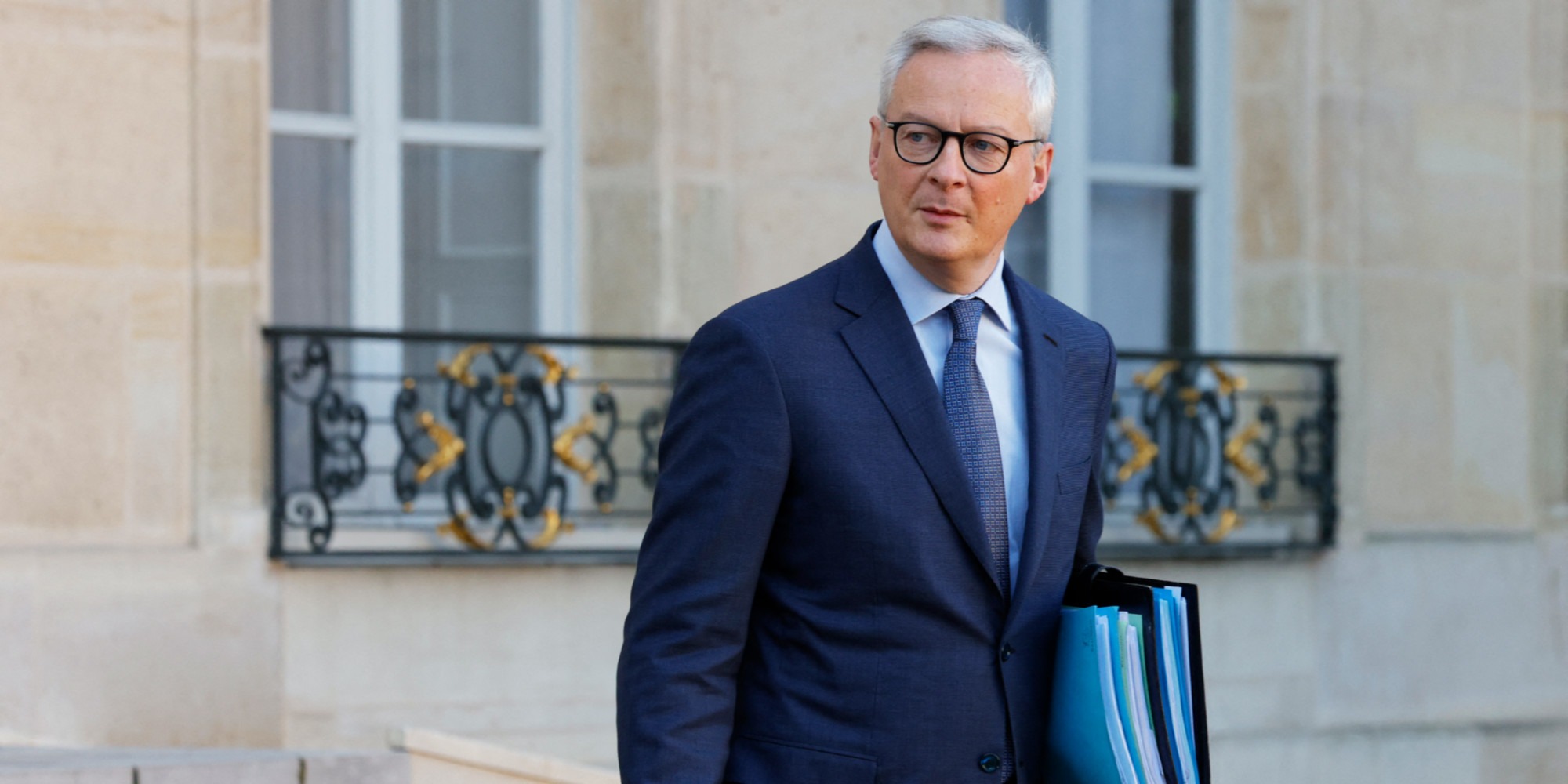Europe 1 with AFP 9:37 a.m., March 26, 2024
The Minister of the Economy, Bruno Le Maire, assured Tuesday of his “intact” and “total” determination to bring the French public deficit below 3% in 2027, but without increasing taxes. An announcement even though INSEE announced that France's deficit amounted to 5.5% of GDP in 2023, far from the 4.9% hoped for by the executive.
The Minister of the Economy, Bruno Le Maire, assured Tuesday of his “intact” and “total” determination to bring the French public deficit below 3% in 2027, but without increasing taxes. Public finances "must be restored", observed Bruno Le Maire on RTL, mainly attributing the situation made official on Tuesday by INSEE of a public deficit at 5.5% of GDP instead of the 4.9% hoped for, to revenue lower than expected.
“My determination to return the public deficit below 3% in 2027 is intact”
According to INSEE, in fact, public revenues increased by only 2% in 2023 after 7.4% in 2022. Taxes alone (before deduction of tax credits) were even "almost at a standstill" according to the National Institute of Statistics, increasing by 0.3% after 7.9% in 2022. "We may have underestimated the fact that inflation is falling faster than we had expected: that's less VAT revenue, less payroll, less payroll revenue, less income tax, less corporate tax", noted the minister, with "in total a loss of revenue of 21 billion euros.
At the same time, he considered that “growth was there and that spending was held” last year. “Believe me, my determination to get back below the 3% public deficit in 2027 is intact, I would even say that it is total,” he assured, stressing that this would involve “additional efforts, more determination , a lot of method and a lot of composure.” On the other hand, the minister reiterated his opposition to tax increases to achieve this, while some voices in the majority invited the government to consider targeted increases.
Don't make the French pay
“We can perfectly make savings on public spending without digging into the pockets of the French and I remain totally opposed to any increase in taxes on our compatriots,” he said, noting that businesses also “pay taxes.” He only showed himself open to increasing the contribution on the "inframarginal rent" of energy companies, inflated in recent years by the rise in energy prices and which only brought in 600 million euros compared to 3 billion estimated by the Energy Regulatory Commission (CRE): “if we want to fill this hole on the basis of deduction from an annuity, that poses no difficulty to me,” he said.
"But for the rest, I refuse this easy solution that we have had for 30 or 40 years in France", saying "the French will pay, as soon as things go badly on the public accounts", he insisted. Instead, he "called for collective awareness of the need to make choices in all our public spending" (State, social spending and local government spending), and announced that he himself was going to "write to all state operators - it could be the National Cinema Center, Business France, all state agencies...", whose "treasuries are doing well", to tell them "you have one month to make me proposals for savings on your budgets, and if you don't make me proposals, we will decide for you."

